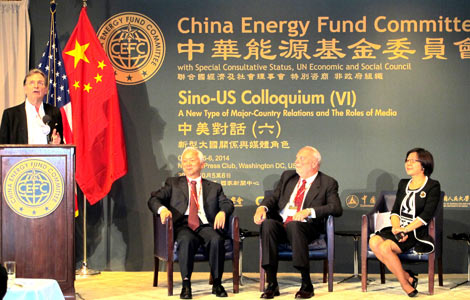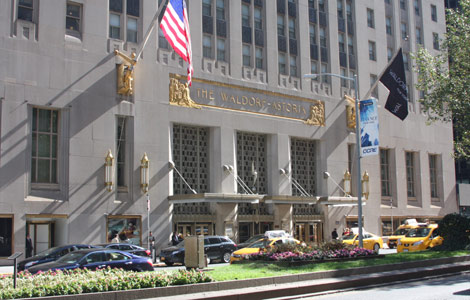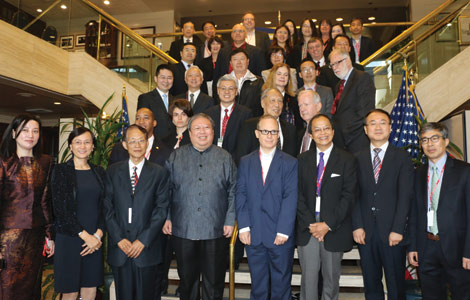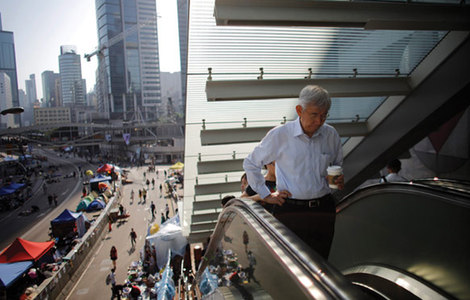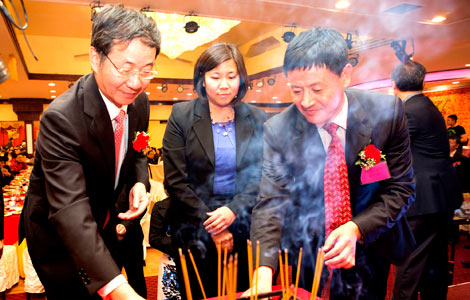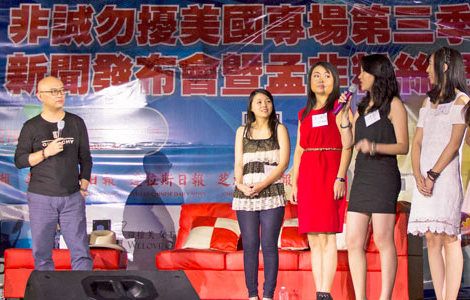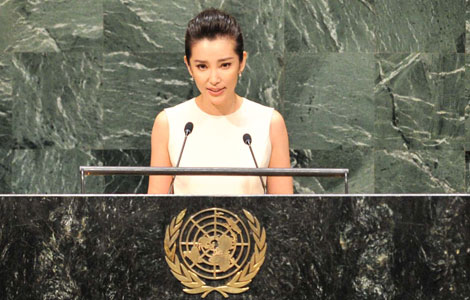Cultural bridge key for China, US
Updated: 2014-10-07 13:10
By Chen Weihua in Washington(China Daily USA)
|
||||||||
|
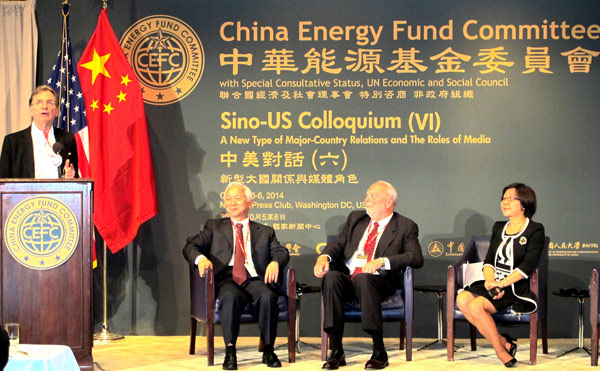 From left: Jim Laurie, executive consultant for CCTV America, speaks on Monday at a panel discussion during a Sino-US colloquium on the new type of major country relationship between China and the US and the role of the media as Xia Jixuan, vice-president of China Radio International, Alan Pendleton, president of NY Radio Group, and Tang Weihong, vice-president of people.cn listen. The two-day forum was held by the China Energy Fund Committee from Oct 5-6 at the National Press Club in Washington. [Chen Weihua / China Daily] |
Ignorance of each other's culture is partly to blame for the misperception between Chinese and Americans, according to a panel of media professionals and scholars.
Xia Jixuan, vice-president of China Radio International (CRI), which is broadcast worldwide, believes insufficient cross-cultural communication is the villain. He cited the Chinese character long, which means dragon. While the Chinese believe dragon is a benevolent, auspicious and divine figure which is always related to royalty, the Western world sees it as representing something malicious, vicious and evil and bringing disaster to people.
"Just imagine, when the Chinese claim themselves as descendants of long (dragon), people in the West are wondering why the Chinese want to be offspring of monsters," Xia said Monday at the sixth Sino-US colloquium on a new type of relationship between China and the US and the role of the media. The meeting on Oct 5-6 at the National Press Club in Washington drew media professionals, scholars, former government officials and lawmakers from the two countries.
Alan Pendleton, president of Washington-headquartered New York Radio Group, said that cultural differences could be the root cause of communication problems. He described the different viewpoints of Chinese and Americans in their approach to negotiation.
While Americans see the goal of negotiation as reaching a binding contract that creates special rights and obligations, Chinese see the goal of negotiation as to create a relationship between the two parties, Pendleton explained.
"The Chinese see it's reasonable to modify a contract to reflect changes; Americans see it as a tendency to fall back on your words," he said.
Pendleton said that people should respond slowly and carefully in cross-cultural exchanges and not jump to conclusion.
Jim Laurie, executive consultant of CCTV America, described Chinese as lacking at marketing and promoting themselves even though "they have wonderful stuff" out there. He said some US cable networks often market and promote things that are trivial in reality.
Robert Daly, director of the Kissinger Institute on China and the United States, agreed. He said that China does not make its case very well even when it has the microphone.
Scott Tong, correspondent and former China bureau chief of American Public Media's "Marketplace", has traveled in China extensively. He described the many misconceptions Americans hold about China, such as the Apple iPhone. Chinese assembly lines make little profit, and the American company controls the bulk of the profits.
"The reality in America is that Apple to many Americans represents Americans' ignorance of the global economy," he said.
Tong also cited American misperception that all goods made in China are of low quality. He talked about his trip to Dongguan, Guangdong province, where top Italian luxury brands also are produced. He also cited the misperception that Chinese foreign direct investment in the US is a threat to US sovereignty, noting his trip to Wanxiang America, a Chinese auto-parts maker near Chicago.
Still, Tong believes the US media have been doing a better job recently covering China.
Scott Talan, assistant professor of the School of Communication at American University, said that the notion that US media are constantly critical of China is unfounded, saying that most stories which most accounts he's seen are non-political about Chinese culture and favorable to China.
But Talan agreed that the US media tend to cover the easy angles rather than in-depth ones. He himself declined an interview recently when a US national publication tried to have him say something provocative and controversial about the situation in Hong Kong.
While the Chinese news media's recent international expansion has drawn much attention, Xia of CRI believes the information flow in terms of news and cultural products between China and the US is still unbalanced in favor of the US.
"Most Americans receive information about China from their own media," Xia said. "And media coverage about China is still limited and incomplete."
chenweihua@chinadailyusa.com
(China Daily USA 10/07/2014 page2)
Most Viewed
Editor's Picks

|

|

|

|

|

|
Today's Top News
Chinese insurer buys NYC's Waldorf hotel
World Bank sees slower rise in China economy
HK occupiers urged to reflect on campaign
6.6-magnitude quake hits Yunnan
Chinese actress Li Bingbing calls for action on climate change
Big believer in real estate now a skeptic due to sluggish sales
WB cuts China growth forecast
World Bank weighs protest's economic impact
US Weekly

|

|
